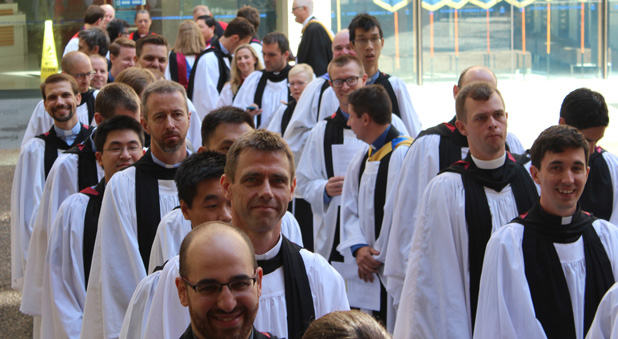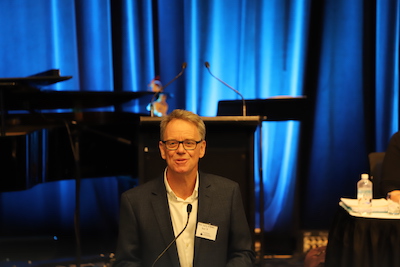Lifelong Ministry Development is set to become a new buzzword after the launch of an initiative that encourages all ministry staff to plan for professional development.
The rate of stress and burnout is one reason the Ministry, Training and Development unit of the Diocese (MT&D for short) unveiled the Lifelong Ministry Development (LMD) framework at Synod last year.
And the stakes are high – one person Southern Cross spoke to for this story said professional development and pastoral supervision saved his ministry.
The Rev Gary O'Brien, director of MT&D, says, “We think professional development is good for everyone. In the business and professional world, it is more or less standard."
"For ministry staff, a lot of people are already doing professional development in various forms but some people are too busy to do much of it. We want to help both those groups of people by providing a good structure and clear pathway for intentional development that will make a difference."
A key component of the LMD is having “peer consultation”. This can vary, as some people prefer the pastoral supervision model while others believe mentors or ministry coaches are most helpful.
The Rev Tom Harricks, senior minister at Penrith, is part of a rectors’ “cluster” chaired by Peter Mayrick of the Centre for Ministry Development.
"I also meet up with Peter to go through a quarterly performance review,” Mr Harricks says. “He holds me accountable for what I have agreed to do."
He believes professional development is an “obvious priority”, considering the demands of ministry.
"When senior ministers are doing well they are being a good teacher, manager, leader, carer, project manager, prayer, recruiter, fundraiser and more!” he says. “Every minister I know needs development in some area – the importance of the task demands it."
Gary O'Brien agrees that any plan needs outside help.
"There should be an element of face-to-face with someone outside your situation,” he says. “It may be a mentor, a pastoral supervisor or a coach. That helps bring accountability and support, some feedback and some focus to help achieve what they want to achieve."
Despite the benefits, Mr O'Brien says busy-ness often intervenes. "Everyone is busy and no one is busier than our ministers. Sermons to prepare, pastoral crises to deal with, Bible studies to lead, funds to find, leaders to recruit, classes to teach, planning to do, the lost to reach and on and on it goes… So what gives? Professional development often gives."
Busy-ness, combined with the fact that 46 per cent of churches have no budget for professional development, makes it difficult to change church culture. But Tom Harricks believes it has the support of many people.
"I find that those [congregation members] who have experienced leadership – they will recognise the various pressures that ministry leaders are facing and the priorities they are juggling and they will affirm it," he says.
So far, nearly 200 ministers have signed up for the Lifelong Ministry Development pathway through its website, lmd.org.au.
"There's been a lot of talk about burnout of clergy and those sorts of things," Mr O'Brien says. "We think this is a proactive approach. We want to make it normal that we as gospel ministers are developing, making time to develop our convictions, our character and our competencies – and not feeling guilty about it."




























